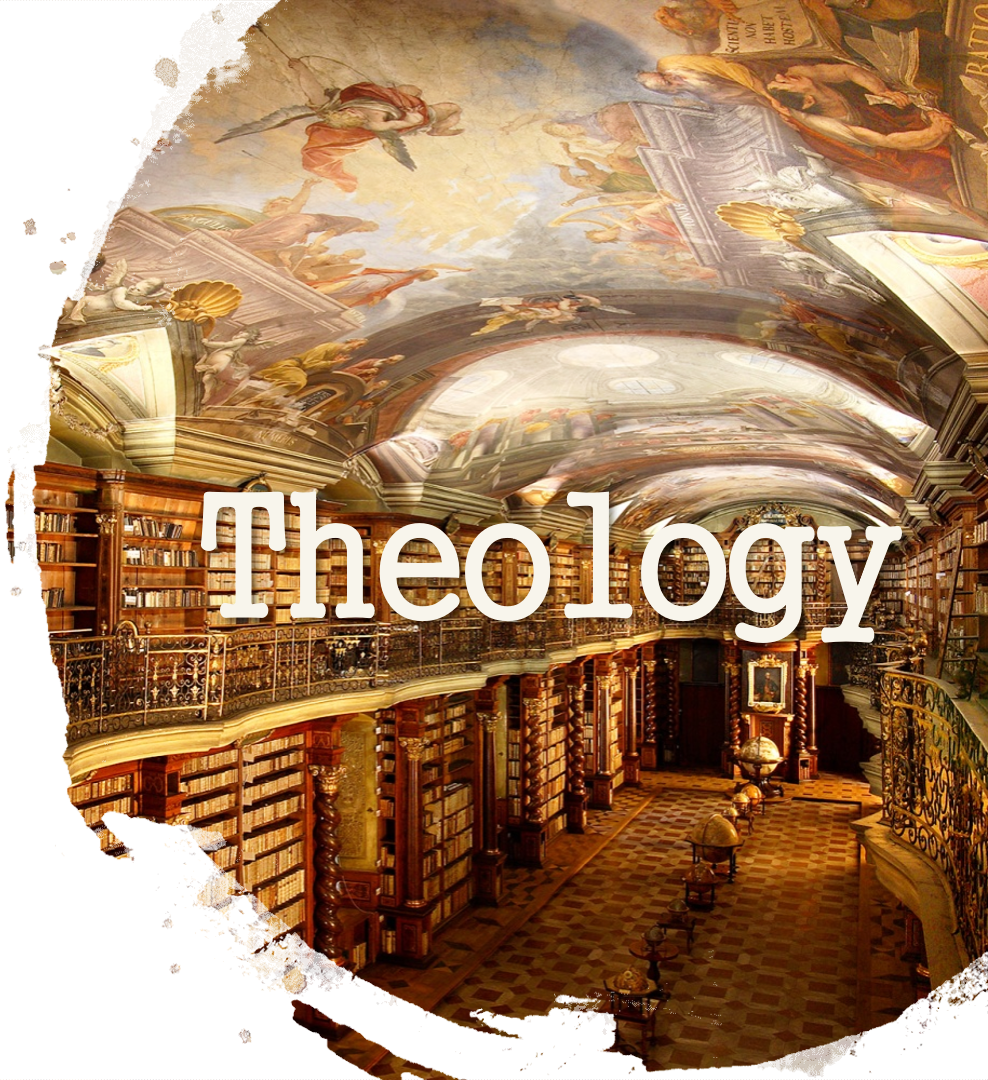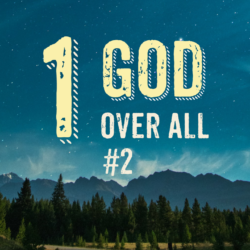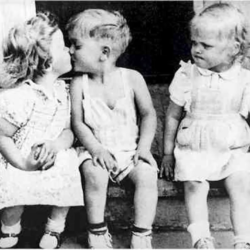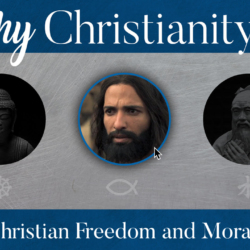How many is God? Although the ancient Shema (recorded in Deuteronomy 6) teaches that God is one, Christian theologians have put forward a number of reasons arguing for a plurality within God. We will examine a number of these words, texts, and reasonings in an effort to agree with Jesus who wholeheartedly affirmed the Jewish Shema as his own greatest commandment.
—— Notes ——
State the Doctrine Simply
God is one.
Texts that Support This Teaching
The Shema!
שְׁמַ֖ע יִשְׂרָאֵ֑ל יְהוָ֥ה אֱלֹהֵ֖ינוּ יְהוָ֥ה׀ אֶחָֽד׃
וְאָ֣הַבְתָּ֔ אֵ֖ת יְהוָ֣ה אֱלֹהֶ֑יךָ בְּכָל־לְבָבְךָ֥ וּבְכָל־נַפְשְׁךָ֖ וּבְכָל־מְאֹדֶֽךָ׃Deuteronomy 6.4-9
4 “Hear, O Israel: The LORD our God, the LORD is one. 5 You shall love the LORD your God with all your heart and with all your soul and with all your might. 6 And these words that I command you today shall be on your heart. 7 You shall teach them diligently to your children, and shall talk of them when you sit in your house, and when you walk by the way, and when you lie down, and when you rise. 8 You shall bind them as a sign on your hand, and they shall be as frontlets between your eyes. 9 You shall write them on the doorposts of your house and on your gates.
story of Akiva
- Roman commander, Turnus Rufus: “Have you no feeling of pain? Are you a sorcerer?”
- Akiva: “I am no sorcerer; but I rejoice at the opportunity now given to me to love my God ‘with all my life,’ seeing that I have hitherto been able to love him only ‘with all my means’ and ‘with all my might,’” and with the word “one” he expired”[1]
Akiva set a precedent for dying, especially in persecution
- from the persecution of the Romans that Akiva faced
- to the forced conversions and subsequent burning at the stake by the Spanish Inquisition of the middle ages
- to the murmur of Jewish voices in the Nazi gas chambers
- to the victims of Hamas today
- this people repeats the words of the Shema in the manner of Akiva over and over and die with it on their lips
- what a legacy!
Isaac Peretz:
“The Hebrew language… is the only glue which holds together our scattered bones. It also holds together the rings in the chain of time…. It binds us to those who built pyramids, to those who shed their blood on the ramparts of Jerusalem, and to those who, at the burning stakes, cried Shema Yisrael!”[2]
Rabbi Shraga Simmons:
“Seth Mandel, the father of 13-year-old Koby Mandel who was bludgeoned to death in a cave by Arab terrorists, spoke at the massive pro-Israel rally in Washington DC in April 2002. He told the following story:
In the Sbarro Pizza bombing which killed 15 people in Jerusalem, five members of a Dutch family were killed. One was a 4-year-old boy named Avraham Yitzhak. As he was lying on the ground – bleeding, burning and dying – he said to his father, “Abba, please help me. Save me.”
His father reached over and held his hand. Together they said the words of the Shema.
Seth Mandel told the DC crowd:
“My son Koby died alone. I didn’t have the chance to say the Shema with him. So now I want you to help me say the Shema for the hundreds of Jews who have been killed in Mideast violence. Say the Shema with me in the merit of the boy in Sbarro’s. And say the Shema with me in the merit of my son Koby.” He then led the crowd of 250,000 in reciting the Shema together. [3]
Talmud:
“Jerusalem was only destroyed because its inhabitants desecrated the Shabbat, they refrained from reciting the Morning and Evening Shema…” (Talmud, Shabbat 119b)
- said each morning and night
- said when praising God
- said when petitioning God
- first prayer taught to a Jewish child
Rabbi Shagra Simmons (again):
“In 1945, Rabbi Eliezer Silver was sent to Europe to help reclaim Jewish children who had been hidden during the Holocaust with non-Jewish families. How was he able to discover the Jewish children? He would go to gatherings of children and loudly proclaim Shema Yisrael – “Hear O Israel, the Lord our God, the Lord is One.”
Then he would look at the faces of the children for those with tears in their eyes – those children whose distant memory of being Jewish was their mothers putting them to bed each night and saying the Shema with them.”[4]
the shema is not a silent cold belief
- you speak it aloud
- to your children
- when you sit
- when you walk
- when you lie down
- when you rise up
- ON YOUR HEART
Difficult Words/Texts/Arguments
1 Elohim Is a Plural
The word elohim does have a plural ending. In Hebrew, the suffix “im” works like an “s” ending in English. Even though elohim is plural in form (it has a plural ending) it can be either singular or plural in meaning (like the word fish in English). For example when the gods of Egypt are mentioned, the word is elohim. However, when the word refers to a singular god, such as Dagon or Moloch, it is still plural in form but singular in meaning (unless we want to say Dagon is a Trinity also?). Other Hebrew words that are plural in form include heaven, water, and face. The way one can tell whether to translate the word as a plural is based on the grammar of the rest of the sentence and the context. This is why every single time the word elohim is used of Yahweh it is translated “God” not “Gods.” Otherwise we would be led to believe that there are multiple Gods, not that there is only one God who exists in plurality of persons.
2 Genesis 1.26
26 Then God said, “Let Us make man in Our image, according to Our likeness; and let them rule over the fish of the sea and over the birds of the sky and over the cattle and over all the earth, and over every creeping thing that creeps on the earth.”
Generally when someone has a vision of God he is not seen alone, but accompanied by angelic beings. Isaiah saw him with at least two seraphs (Isaiah 6.1-3); Ezekiel saw the throne of God carried about by four flying cherubs (Ezekiel 1.5; 10.15, 20); Daniel saw the Ancient of Days surrounded by thousands of angelic beings who were attending him (Daniel 7.9-10); John saw God surrounded by four living creatures, twenty-four elders, and myriads of angels (Revelation 4.6, 10; 5.11; 7.11). The Bible plainly states that the angels were there when God created the heavens and the earth (Job 38.4-7). So who was God talking to in Genesis 1.26; 3.22; and 11.7? He was speaking to his heavenly court who also bear the image of God (i.e. the authority to rule under God).
3 Genesis 19.24
24 Then the LORD rained on Sodom and Gomorrah sulfur and fire from the LORD out of heaven.
- here Yahweh rains fire from Yahweh
- some say this proves there are multiple Yahwehs
- of course, this defies Deut 6.4 where it clearly says Yahweh is one
- and Deut 4.35 says Yahweh is God and there is no other besides him
- furthermore, as Raymond Essoe points out in his paper,
“‘Shaliah’ An Introduction to the Law of Agency,” pp. 5-6:
“Who destroyed Sodom and Gomorrah, two angels or God? Genesis 19 begins with two angels arriving in Sodom, who were recognized as men sent to destroy the cities in the plain. The angels tell Lot, “The outcry to the LORD against its people is so great he has sent us to destroy it” (Gen 19.13). Lot tells his family, “Hurry and get out of this place, because the LORD is about to destroy city!” Then the LORD rained down burning sulfur on Sodom and Gomorrah – from the LORD out of the heavens. Thus, he overthrew those cities and the entire plain. The narrative ends with Abraham looking at the destruction and the statement of when God destroyed the cities of the plain. Again, who destroyed the cities, God, or angels? This narrative of God’s judgment is an illustration of agency at work. God ultimately is the one who destroyed the cities in the plain. The angels are the means by which God destroyed the cities; for they are God’s servants, an agent of wrath to bring punishment on the wrongdoer. Another way of illustrating this concept is one who has committed murder with a firearm. The firearm is the means by which the murderer killed the victim. Or the electric chair is the means by which the death penalty was executed. In this case, the firearms or electric chair were the angels.”
4 Echad Is Compound Unity
From John Schoenheit’s One God & One Lord, Appendix A:
“Deuteronomy 6:4 Hear, O Israel: The Lord our God, the Lord is one. (NIV) 1.It is believed by some that the Hebrew word “one” (echad) that is used in Deuteronomy 6:4 and other verses indicates a “compound unity.” This is just not true. Anthony Buzzard writes:
It is untrue to say that the Hebrew word echad (one) in Deut. 6:4 points to a compound unity. A recent defense of the Trinity argues that when “one” modifies a collective noun like “cluster” or “herd,” a plurality is implied in echad. The argument is fallacious. The sense of plurality is derived from the collective noun, not from the word “one.” Echad in Hebrew is the numeral “one.” Isa. 51:2 describes Abraham as “one” (echad), where there is no possible misunderstanding about the meaning of this simple word (p. 15).
There is no reference to the word “one” as to a plurality of any kind. It is used of “one” in number, “the first” in a series, “one” in the sense of “the same,” and “one” in the sense of “each” or “a certain one. “A study of its uses in the Old Testament will reveal its simple meaning and the truth it conveys. It is translated “first” in Genesis 1:5, when God made light on the “first” day. The whole earth spoke “one” language before Babel (Gen. 11:1). Hagar cast her child under “one” of the bushes (Gen. 21:15). In Pharaoh’s dream, there were seven ears of grain on “one” stalk (Gen. 41:5). In the plague on Egypt’s livestock, not “one” cow died in Israel (Ex. 9:6). Exodus 12:49 says that Israel shall have “one” law for the citizen and the foreigner. The examples are far too many to list. Echad is used more than 250 times in the Old Testament, and there is no hint in any Jewish commentary or lexicon that it somehow implies a “compound unity. “The history of the Jews is well known. They were infamous in the ancient world for being downright obnoxious when it came to defending their “one God,” as civilizations down through the ages found out. Snedeker quotes Eliot:
One thing, very important, is certain, that if any such hints [that God was a plurality of persons] were conveyed, the Jews never understood them. The presumption is that they knew their own language, and it is certain they understood that the Unity of God was taught by their Scriptures in the most absolute and unqualified manner. Such was their interpretation of Moses and the Prophets at the time when Christ came. In all Palestine there probably could not have been found a single man or woman, who supposed that there was any distinction of persons, such as is now taught, in the Unity of God (p. 293).
5 Triplet Texts
2 Corinthians 13.14
14 The grace of the Lord Jesus Christ and the love of God and the fellowship of the Holy Spirit be with you all.1 Corinthians 12.4-6
4 Now there are varieties of gifts, but the same Spirit; 5 and there are varieties of service, but the same Lord; 6 and there are varieties of activities, but it is the same God who empowers them all in everyone.Matthew 28.19
19 Go therefore and make disciples of all nations, baptizing them in the name of the Father and of the Son and of the Holy Spirit
As for the legitimacy of this text and understanding how to harmonize it with the baptismal statements in Acts, see handout.
This is the closest the Bible ever comes to teaching the Trinity. All three are mentioned and they have one name. But, doesn’t the Trinity teach that there are three persons in one being, which would result in three names not one? Also, it is remarkable to observe what the verse doesn’t say. It doesn’t say, “baptizing them in the name of the Trinity,” it doesn’t say, “baptizing them in the name of the F, S, HS one God.” Are we really supposed to accept that the first time Jesus mentioned to his disciples about the Trinity was the moment before he left? Did he leave them with a hint and then expect them to work out the details? No, this verse will depend on what your prior beliefs about the Father, Son, and holy spirit are.
The Father is God; the Son is the human Messiah; and the holy spirit is how the Father and Son are present in the world (especially in the church via the paraklete). The name should not be taken literally since the Father’s name (Yahweh) is different than the Son’s name (Jesus) and the Holy Spirit is never given a name in Scripture. Thus, the name should be understood in a metaphoric sense as the agenda, purpose, or authority of the Father, Son, and spirit. For example, Haman wrote a letter to exterminate the Jews in the time of Esther in the name of King Ahasuerus (Esther 3.12). The priests, Aaron’s descendants, were to serve in the name of Yahweh forever (Deuteronomy 18.5). So, new Christians are to be baptized in the name of Father, Son, and spirit—the purpose or authority of Father, Son, and holy spirit.
Dale Tuggy has pointed out the parallel of I deputize you in the name of the mayor, the town, and the state constitution. Three items mentioned together don’t make them one. If I say, I like Meb Keflezighi, Shane Flanagan, and running, that doesn’t make them the same. Here we baptize in God, his son, and his spirit.
Other Random Arguments
The Trinity Must Be True Since So Many Christians Believe It
Jay Dicken explains:[5]
“Doesn’t the fact that almost all Christians accept the doctrine of the trinity prove that it is true? Consider, two thousand years ago the vast majority of the Jews rejected Jesus as their Messiah; did this prove that he was not the Messiah? No, it did not. What is important is what the Bible does –or does not– say, not what the majority choose to believe. The Bible explicitly states that the Father is the one God; and Jesus explicitly identified his Father as our Father and his God as our God.1 He also explicitly said that the Father is the “only true God.” Nowhere does the Bible explicitly say that God is a trinity. — 1 Corinthians 8:6, Ephesians 4:6, John 20:17, 17:1-3”
Jesus is God because he raised the dead
Jesus raised Lazarus, Jairus’ daughter, and the widow’s son. If raising the dead makes Jesus God, then Elijah, Elisha, and Peter are also God because they also raised the dead. Peter also walked on the water.
Jesus is God because he walked on water
Jesus confessed the source of his miracles when he said, “the Father abiding in me does His works” (John 10.25, 32, 37; 14.10) and “the Son can do nothing of himself” (John 5.19). Jesus walked on the water because God empowered him to do so.
Jesus is God because he cast out demons
Often Jesus came face to face with the spiritual forces of wickedness. He never struggled but cast them out with a few words. However, he is not unique here either, the 12 also cast out demons as well as the 70. Besides, Jesus clearly stated, “I cast out demons by the spirit of God” (Matthew 12.28). God empowered His Messiah to do these things.
Jesus is God because he forgave sins
When the paralyzed man was brought to Jesus, he said, “Take courage, son; your sins are forgiven” (Matthew 9.2). It is alleged that since all sins are ultimately an affront to God (Ps 51.4), that only God can forgive sins. This reasoning is logical, but what if God conferred His right to forgive sins onto his earthly agent—the Messiah? “But when the crowds saw this, they were awestruck, and glorified God, who had given such authority to men” (Matthew 9.8). Similarly, Christ’s disciples are authorized to forgive or retain sins (cf. John 20.23).
Jesus never sinned therefore he must be God
Adam was made in God’s image—perfect. God’s plan was for him to stay sinless, live forever, cultivate the Garden of Eden, rule over the earth, and produce many children. Jesus also was made in the image of God (Col 3.10). He was divinely created (begotten) (Luke 1.35; Matthew 1.20) in the womb of his mother, Mary. (Adam was also divinely made (Gen 2.7).) Thus, Jesus falls in the category of one who began perfect who needed to maintain his perfection (i.e. the second Adam). Because of what Christ has done, we can now mortify the deeds of our old man and live as he lived (Romans 8.10, 13). Christ is the example of what God can do with a wholly submitted human. To say that one has to be God to be made perfect means that Adam never had a chance and that all Christians will be made “Gods” in the resurrection.
If Jesus were not God then our sins would not be paid for
This argument is easily refuted for four reasons (1) Nowhere is this stated in the Bible; (2) God cannot die (1 Timothy 1.17 says he is immortal); (3) A sacrifice is effective because God accepts it, not because it is exactly equivalent to the transgression; (4) According to their view, only the body (the humanity) of Jesus died; his spirit (the deity) continued to live. Thus, the God portion of Jesus did not die, only impersonal human nature, which is even less valuable than a real human being!
[1] Yer. Ber. 9.14b (also see Bab. 61b).
[2] Isaac Leib Peretz, Alle Verk, xii. 14, 1890.
[3] Rabbi Shraga Simmons, Aish website, http://www.aish.com/jl/m/pb/48954656.html
[4] Rabbi Shraga Simmons, Aish website, http://www.aish.com/jl/m/pb/48954656.html
[5] http://www.christianmonotheism.com/media/text/Jay%20Dicken%20–%20echad.pdf
—— Links——
- Read the article, “Is Matthew 28.19 a Forgery“
- See other episodes in this Theology Class
- Find more Restitutio classes here
- More podcasts and posts about biblical unitarian monotheism
- Intro music: Jazzy Frenchy by bensound.com. Licensed under Creative Commons: By Attribution 3.0 License.







